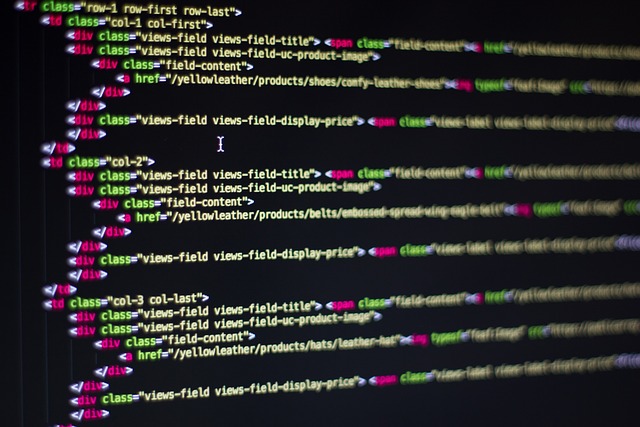Translation services are vital for global collaboration in the UK's R&D sector, ensuring scientific knowledge is accessible worldwide without loss of integrity. Professional translators with scientific expertise handle complex terminology, facilitating international partnerships. Choosing a suitable translation service requires considering experience, language proficiency, confidentiality, timely delivery, and transparent pricing. Reputable providers employ robust QA processes, advanced tools, and specialized training to maintain accuracy. Using uncertified translations poses legal and ethical risks, while cost-effective solutions through hybrid machine translation and human editing are available for budget-constrained researchers.
Keywords: Translation services for UK Research and Development Documents
Do you need certified translations for your UK R&D papers? Accurate translations are crucial for global collaboration, knowledge sharing, and the success of your research. This comprehensive guide explores the growing importance of translation services in the UK’s research landscape. From understanding the challenges researchers face to navigating legal implications, we delve into key considerations for choosing reliable providers, ensuring scientific integrity, and managing budgets effectively. Discover how professional translation services are revolutionizing access to vital R&D documents.
- Understanding the Importance of Accurate Translations for UK R&D Papers
- Challenges in Obtaining Certified Translations: A Researcher's Perspective
- The Role of Professional Translation Services in Ensuring Scientific Integrity
- Key Considerations When Choosing a Translation Service for Research Documentation
- Quality Assurance Processes in Certified Translation Services
- Legal and Ethical Implications of Using Uncertified Translations in R&D
- Cost-Effective Solutions for Researchers: Balancing Quality and Budget
- Future Trends in Translation Services for UK's Research and Development Sector
Understanding the Importance of Accurate Translations for UK R&D Papers

In the realm of UK Research and Development (R&D), clarity and precision are paramount, especially when communicating findings across languages. Translation services for UK R&D documents play a pivotal role in ensuring that research papers, grant applications, and scientific reports reach their intended global audience accurately. With language barriers removed, researchers can effectively share groundbreaking discoveries, fostering collaboration and innovation on an international scale.
Accurate translations are crucial to maintaining the integrity of R&D content. Scientific terminology often has specific nuances, and mistranslations can lead to misunderstandings or misinterpretations. Professional translation services employ linguists who specialize in scientific fields, guaranteeing that complex ideas are conveyed with both accuracy and clarity. This, in turn, facilitates knowledge exchange, enables global partnerships, and contributes to the advancement of science and technology worldwide.
Challenges in Obtaining Certified Translations: A Researcher's Perspective

The Role of Professional Translation Services in Ensuring Scientific Integrity

Key Considerations When Choosing a Translation Service for Research Documentation

When selecting a translation service for your UK R&D papers, several key considerations come into play. Firstly, ensure the provider has experience and expertise in handling scientific and technical documentation. Research documents often contain complex terminology, so professional translators with relevant subject matter knowledge are essential to preserve accuracy. Look for native speakers or those with a strong command of both the source and target languages to guarantee fluent and precise translations.
Additionally, confidentiality is paramount when sharing sensitive research data. Choose a service that prioritises data security and can provide non-disclosure agreements (NDAs) to protect your intellectual property. Timely delivery is another critical factor; especially in fast-paced R&D environments, you’ll need quick turnaround times without compromising quality. Reputable translation services should offer transparent pricing structures and flexible packages tailored to your specific needs.
Quality Assurance Processes in Certified Translation Services

When it comes to translation services for UK Research and Development (R&D) documents, ensuring quality is paramount. Reputable certified translation providers employ rigorous Quality Assurance (QA) processes to guarantee accuracy and fluency in the target language. These procedures often involve multiple stages of review and editing by skilled translators and language experts, minimizing errors and miscommunications that could impact the integrity of R&D data.
Beyond individual translator expertise, QA protocols may include automated tools like translation memory software and terminology databases. These technologies help maintain consistency in terminology usage across large documents, ensuring clarity and coherence. Regular training sessions on industry-specific terminology further enhance the proficiency of translators working on translation services for UK R&D papers, enabling them to accurately convey complex scientific and technical concepts in the target language.
Legal and Ethical Implications of Using Uncertified Translations in R&D

Using uncertified translations in research and development (R&D) documents can have significant legal and ethical implications, especially when dealing with UK-based papers intended for international dissemination. In the world of science and innovation, clarity and accuracy are paramount to ensure the integrity of research findings and protect intellectual property rights. Uncertified translators may lack the specialized knowledge required to handle complex scientific terminology, leading to potential errors or misinterpretations. This could result in legal issues if the translated document is used as evidence in a patent dispute or academic investigation.
Moreover, uncertified translations may not align with ethical guidelines governing research integrity. Accurate documentation is essential for maintaining transparency and reproducibility in R&D. Misleading or inaccurate translations can compromise the validity of experimental results, impact future research based on those findings, and even pose risks to public health or safety if the research involves clinical trials or regulatory submissions. Therefore, when dealing with UK R&D documents, it’s crucial to avail yourself of professional translation services that offer certified translations, ensuring compliance with legal requirements and maintaining the ethical standards vital in scientific discourse.
Cost-Effective Solutions for Researchers: Balancing Quality and Budget

Many researchers working on UK R&D projects face a common challenge: balancing the need for high-quality translations with strict budget constraints. Traditional translation services can be expensive, making it difficult for researchers to afford vital documentation in multiple languages. However, there are cost-effective solutions available that don’t compromise on quality.
Online platforms offering machine translation coupled with human post-editing offer a viable alternative. These platforms leverage advanced AI technology to provide quick and accurate initial translations, significantly reducing costs. Human translators then refine these machine translations, ensuring accuracy, fluency, and cultural appropriateness. This hybrid approach delivers both speed and affordability, making it an ideal solution for researchers needing certified translations for their UK R&D papers while adhering to budget requirements.
Future Trends in Translation Services for UK's Research and Development Sector

The future of translation services for UK’s R&D sector is poised for significant evolution, driven by technological advancements and shifting industry needs. Artificial Intelligence (AI) and Machine Translation (MT) are expected to play a pivotal role in enhancing efficiency and accessibility within this domain. As these technologies mature, we can anticipate more accurate and contextually sensitive translations, reducing the reliance on human translators for routine tasks. This shift could democratise access to research findings, enabling global collaboration and knowledge exchange at an unprecedented pace.
However, while AI offers immense potential, it’s crucial to acknowledge that human expertise remains indispensable. Specialized translation services for UK R&D documents will continue to be vital for handling complex terminology, ensuring cultural nuances are respected, and maintaining the integrity of scientific data. The future landscape may see a greater emphasis on post-editing AI translations, combining the speed of automation with the precision of human experts.
In conclusion, accurate translations are paramount for the successful global dissemination of UK R&D papers. Navigating the challenges of obtaining certified translations requires an understanding of professional translation services’ critical role in maintaining scientific integrity. Researchers can ensure quality and cost-effectiveness by considering key factors when choosing a translation service, leveraging quality assurance processes, and being mindful of legal and ethical implications. As the sector evolves, embracing future trends in translation services will further enhance international collaboration and the impact of UK research. Translation services for UK Research and Development Documents are essential tools to facilitate global knowledge exchange and drive scientific advancement.
